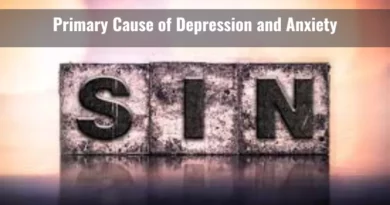Ombudsman: Definition, Types, & Functions
Takeaways
| Key Points |
|---|
| An ombudsman is an independent official tasked with investigating and resolving complaints from individuals or organizations regarding unfair treatment by public authorities, private companies, or other institutions. |
| Originating in Sweden in 1809, the concept aimed to ensure governmental accountability and citizen rights, later expanding globally and evolving to address various sectors such as government, industry, healthcare, education, and media. |
| Ombudsmen operate based on key principles, including independence, confidentiality, impartiality, transparency, and fairness, ensuring equitable treatment and fostering trust. |
| Their duties include investigating complaints, mediating disputes, advising on best practices, recommending policy changes, and monitoring compliance. |
| Ombudsmen’s legal authority, defined by jurisdiction, ranges from issuing binding decisions to offering recommendations, but their role often faces challenges like limited jurisdiction, resource constraints, resistance from institutions, and political pressures. |
| Despite these limitations, the ombudsman model has become an essential mechanism for promoting accountability, transparency, and fairness, ensuring justice across public and private sectors. |
| Through education and advocacy, ombudsmen also raise awareness of rights and foster a culture of accountability and fairness. |
Introduction
Definition of Ombudsman
An ombudsman is an official, often appointed by the government or an organization, whose primary function is to investigate and resolve complaints from individuals or entities who believe they have been treated unfairly by public authorities, private companies, or other organizations.
The ombudsman serves as an independent mediator who ensures that grievances are addressed impartially, effectively, and, in many cases, confidentially. Unlike courts, which resolve legal disputes, the ombudsman seeks to provide an accessible and straightforward means for individuals to voice concerns and seek redress.
Historical Background and Origin
The concept of the ombudsman is rooted in Sweden, where the Swedish Parliament appointed the first ombudsman in 1809. This role was created primarily to oversee government officials’ activities and ensure they adhered to the laws and were held accountable for their actions. The term “ombudsman” itself is derived from the Old Norse word “umboðsmaðr,” which means “representative.”
The Swedish Parliament appointed this official during a political crisis, intending to safeguard the rights of citizens and ensure governmental accountability, drawing inspiration from the earlier role of the Supreme Ombudsman created by King Charles XII during his exile.
This oversight model proved successful, and, over time, the concept spread globally, evolving to address various forms of administrative oversight and dispute resolution.

Evolution and Global Adoption
The ombudsman’s role gradually expanded beyond Sweden and was adopted by many other countries throughout the 20th century. Establishing ombudsman offices across Europe in the mid-1900s marked the beginning of a broader adoption of this role. In the United Kingdom, the Parliamentary Commissioner for Administration (often called the Parliamentary Ombudsman) was established in 1967, reflecting the growing recognition of the need for an independent body to address public grievances against governmental actions.
As the concept evolved, different countries adapted the role to fit their specific needs, creating various types of ombudsmen. Today, ombudsmen operate in numerous sectors, including government, industry, healthcare, and education, each with a focus tailored to the particular concerns of their respective fields. The global expansion of the ombudsman role underscores its importance in promoting accountability, transparency, and fairness in both public and private sectors.
Types of Ombudsman
1. Government Ombudsman
The government ombudsman, or public sector ombudsman, monitors the performance of government agencies by investigating complaints from citizens regarding maladministration, unfair treatment, or inaction. They review administrative actions to ensure compliance with legal and ethical standards, providing an independent platform for citizens to raise concerns.
Role in Monitoring Government Performance:
A key function of the government ombudsman is to ensure that government agencies operate efficiently, ethically, and within the law. They review public officials’ and agencies’ actions, recommend improvements, and, where permitted, enforce changes to prevent future issues.
Key Functions and Powers:
Government ombudsmen investigate complaints, request documents, interview witnesses, and make recommendations. Their decisions may be legally binding or carry significant persuasive power depending on the jurisdiction. They address individual complaints and systemic issues, ensuring public officials are held accountable, and citizens’ rights are protected.
2. Industry Ombudsman
Industry ombudsmen address complaints within telecommunications, financial services, or energy sectors. Although funded by the industries they oversee, industry ombudsmen are designed to function independently, ensuring they handle disputes impartially. They focus on resolving consumer complaints about unfair treatment, billing issues, or contract breaches.
Focus Areas:
Industry ombudsmen resolve disputes in sectors with high consumer interaction, such as telecommunications and financial services. For example, they may handle complaints about service quality, billing disputes, or unfair banking practices.
Resolution Mechanisms:
Industry ombudsmen typically mediate between the consumer and the company to find an acceptable resolution. If mediation fails, they may issue a decision or recommendation, which the company is expected to implement. In certain cases, the ombudsman’s decision can be legally binding, providing consumers with additional protection and assurance.
3. Organizational Ombudsman
Organizational ombudsmen work within specific organizations, such as universities, corporations, or healthcare institutions, to address internal conflicts and complaints. While employed by the organization, they are expected to act independently and impartially.
Role within Corporations, Universities, and Healthcare:
In corporations, ombudsmen resolve workplace disputes and address employee grievances. In universities, they assist with conflicts related to academic issues, harassment, or administrative decisions. Ombudsmen focus on patient rights in healthcare, addressing complaints about care quality and service access.
Internal Conflict Resolution:
Organizational ombudsmen resolve internal conflicts by providing a confidential, neutral space for concerns, facilitating communication, and offering mediation. They help prevent issues from escalating and foster a positive organizational culture without resorting to formal disciplinary actions or legal proceedings.

4. Advocate Ombudsman
Advocate ombudsmen actively support and advocate for the rights of specific groups, such as long-term care residents, children, or other vulnerable populations. Unlike other ombudsmen, who remain impartial, advocate ombudsmen are tasked with championing the interests of those unable to advocate for themselves.
Support for Vulnerable Groups:
Advocate ombudsmen operate in settings where individuals are particularly vulnerable, such as long-term care facilities, juvenile justice systems, or child protection services. They ensure that the rights of these individuals are upheld, intervening in cases of abuse, neglect, or discrimination.
Advocacy vs. Impartiality:
While the ombudsmen advocate for their constituents’ rights, they must maintain some impartiality when investigating complaints. Their role is to ensure fair treatment for all parties while protecting the vulnerable, balancing advocacy with impartiality to maintain credibility and effectiveness.
5. Classical Ombudsman
The classical ombudsman, rooted in the traditional Swedish model, focuses on broad issues such as human rights, anti-corruption efforts, and the protection of civil liberties. Operating nationally, they address systemic issues within government and public administration.
Focus on Human Rights and Anti-Corruption Efforts:
Classical ombudsmen address human rights violations, government corruption, and abuses of power. They hold public officials accountable, ensure government transparency, and contribute to protecting and promoting human rights by investigating complaints and recommending policy changes.
6. Media Ombudsman
Media ombudsmen ensure transparency and accuracy in journalism by addressing public complaints about media content, including allegations of bias, inaccuracies, or unethical reporting. They work with journalists, editors, and media organizations to uphold high standards of journalistic integrity.
Ensuring Transparency and Accuracy in Journalism:
In an era of misinformation and biased reporting, media ombudsmen play a crucial role in maintaining trust in the media. They provide a platform for the public to raise concerns, ensure news organizations adhere to ethical standards and promote accurate and balanced reporting.
Key Principles and Ethical Standards

Here are the key principles and ethical standards of an Ombudsman:
- Independence: The Ombudsman operates independently from other organizational structures to ensure impartiality and unbiased decision-making.
- Confidentiality: All communications and information shared with the Ombudsman are kept confidential, protecting the privacy of all parties involved.
- Impartiality: The Ombudsman remains neutral and impartial, avoiding conflicts of interest and ensuring fair consideration of all sides in a dispute.
- Transparency: The Ombudsman process is transparent, with clear procedures and policies accessible to all stakeholders.
- Fairness: The Ombudsman ensures that all parties are treated fairly and is committed to equity and justice in resolving issues.
- Accessibility: The services of the Ombudsman are easily accessible to all individuals, providing support and assistance to those in need without unnecessary barriers.
- Accountability: The Ombudsman is accountable for their actions and decisions, providing explanations and justifications as required and upholding the integrity of the role.
- Professionalism: The Ombudsman conducts their duties professionally, adhering to ethical standards and continuously updating their knowledge and skills to effectively serve the public.
Functions and Duties
Here are the key functions and duties of an Ombudsman:
- Complaint Investigation: The Ombudsman investigates complaints from individuals or groups regarding unfair treatment, maladministration, or injustice by public institutions or organizations, ensuring that these complaints are thoroughly examined.
- Mediation and Dispute Resolution: The Ombudsman acts as a mediator to resolve disputes between the complainant and the organization, aiming for an amicable solution without legal action.
- Advisory Role: The Ombudsman provides advice and guidance to individuals and organizations on rights, procedures, and best practices, helping to prevent future disputes and improve institutional practices.
- Policy Recommendations: Based on the investigation findings, the Ombudsman recommends improving policies, procedures, and practices within organizations to promote better governance and accountability.
- Public Reporting: The Ombudsman publishes reports on their activities, findings, and recommendations, ensuring transparency and informing the public and government about systemic issues and areas for improvement.
- Advocacy for Fair Treatment: The Ombudsman advocates for the fair treatment of individuals, ensuring that their rights are respected and that they receive equitable treatment in their interactions with public and private organizations.
- Monitoring and Oversight: The Ombudsman monitors the implementation of their recommendations and the actions taken by organizations in response to complaints, ensuring compliance and accountability.
- Education and Outreach: The Ombudsman engages in public education and outreach efforts to raise awareness about their role, the rights of individuals, and the importance of fair treatment and justice in society.

Ombudsman in Different Sectors
Public Sector
Ombudsmen in the public sector ensure government accountability by investigating complaints from citizens about government agencies. They address issues like bureaucratic delays, unfair treatment, and breaches of public trust, helping maintain public administration’s integrity and protect individual rights.
Case Studies of Government Ombudsman Impact:
Government ombudsmen have made significant impacts, such as the UK Parliamentary Ombudsman, which addressed maladministration and led to policy changes, and the Australian Commonwealth Ombudsman, which ensured government transparency and fairness.
Private Sector
Private sector ombudsmen are often found in large corporations, particularly in industries with high consumer interaction, such as finance, telecommunications, and healthcare. They handle complaints from customers, employees, and other stakeholders, helping to resolve disputes and improve organizational practices.
Ombudsman in Corporations and Consumer Protection:
Private sector ombudsmen are key to consumer protection, ensuring fair practices. Financial ombudsmen, for example, address complaints about banking, investment products, and insurance claims, providing an independent avenue for redress and promoting ethical business practices.
Education
In educational institutions, ombudsmen ensure fair treatment for students, faculty, and staff by addressing issues ranging from academic disputes to misconduct allegations. They provide a neutral, confidential resource for conflict resolution.
Ombudsman in Universities and Schools:
University ombudsmen resolve grading, disciplinary actions, and discrimination disputes, helping maintain a positive academic environment. School ombudsmen address issues like bullying and unfair treatment of students, ensuring school policies are applied fairly.
Healthcare
Healthcare ombudsmen protect patient rights and ensure quality care by handling complaints about treatment, access to services, and the conduct of medical professionals.
Role in Patient Rights and Complaint Resolution:
Healthcare ombudsmen advocate for patients, investigating complaints about care quality, billing practices, and service access. They help improve care quality and ensure patients’ rights are upheld.

Legal Framework and Authority
Legal Framework and Authority
Ombudsmen are established through legislation that defines their roles and responsibilities. In the UK, the Legal Ombudsman operates under the Legal Services Act 2007, which grants it the authority to resolve disputes between legal service providers and clients. This framework is designed to ensure independent and impartial operations.
Legislative Backing and Jurisdiction
Ombudsmen’s jurisdiction and powers are outlined in enabling legislation, which defines their scope and authority. However, the extent to which they can interpret laws, conduct inquiries, and make binding decisions varies. While some ombudsmen have the authority to issue binding decisions, others may only offer recommendations. The enforceability of their decisions depends on the specific legislative framework under which they operate.
Legal Powers (e.g., Subpoena, Binding Decisions)
Ombudsmen may have quasi-judicial powers, such as summoning witnesses or compel document production. Still, these powers are not universal and can vary significantly depending on the jurisdiction.
While U.S. federal agencies like the SEC and FTC use administrative subpoenas as part of their enforcement powers, this level of authority is not commonly granted to ombudsmen, whose powers to compel action can vary significantly depending on the jurisdiction.
Differences in Authority Across Jurisdictions
Ombudsmen’s authority indeed varies by jurisdiction. In some regions, they have extensive powers to enforce decisions. In contrast, in others, their role is more advisory, with recommendations that lack binding authority. This variation reflects different legal and administrative traditions across countries.

Challenges and Limitations
Here are the challenges and limitations commonly faced by Ombudsman offices:
- Limited Jurisdiction: Ombudsman offices often have restricted authority and can only address complaints within a specific scope, limiting their ability to intervene in broader issues or cases involving multiple jurisdictions.
- Resource Constraints: Many Ombudsman offices operate with limited resources, including funding, staff, and technological support, which can hinder their ability to handle a large volume of cases effectively.
- Lack of Enforcement Power: While Ombudsmen can make recommendations, they typically lack the legal authority to enforce decisions, which may result in organizations ignoring or not fully implementing their recommendations.
- Resistance from Institutions: Some organizations may resist external oversight or scrutiny, making it challenging for the Ombudsman to obtain necessary information or cooperation.
- Confidentiality vs. Transparency: Balancing the need for confidentiality with the demand for transparency can be challenging, particularly when stakeholders seek more openness about the Ombudsman’s investigations and outcomes.
- Public Awareness and Trust: Building and maintaining public awareness and trust is crucial yet challenging, as many people may be unaware of the Ombudsman’s role or skeptical about its effectiveness.
- Complexity of Cases: Ombudsman offices often deal with highly complex cases that require in-depth investigation, which can be time-consuming and may delay resolutions.
- Political Pressure: Ombudsman offices can face political pressure, particularly when their findings or recommendations are unfavorable to powerful individuals or institutions, potentially compromising their independence and effectiveness.

Conclusion
The ombudsman institution promotes public and private sector accountability, fairness, and transparency. By providing an independent and impartial mechanism for addressing complaints, ombudsmen help protect individuals’ rights and improve the functioning of organizations. While the ombudsman’s role varies across different sectors and countries, the core principles of independence, impartiality, and confidentiality remain constant. As the institution evolves, it will face new challenges and opportunities. Still, its fundamental mission of serving as a watchdog for fairness and justice will endure.
FAQ
What is “Administrative Fairness” in the context of an Ombudsman’s work?
Administrative fairness refers to the principles ensuring that decisions by administrative bodies are made fairly, embodying concepts of natural justice and procedural fairness. This includes rights such as adequate notice, access to information, representation, and receiving clear reasons for decisions.
How does “Maladministration” relate to the Ombudsman’s investigations?
Maladministration encompasses actions, omissions, decisions, or recommendations leading to inefficiencies, improprieties, poor service, or bad management. The Ombudsman investigates such instances to rectify injustices and improve administrative practices.
What does “Due Process” entail in Ombudsman procedures?
Due process involves adhering to rules of procedural fairness, ensuring all parties have a fair opportunity to be heard, respond to complaints, receive reasonable notice, and understand unbiased reasons for decisions.
How is “Confidentiality” maintained during Ombudsman investigations?
Confidentiality protects the interests of all involved in an Ombudsman inquiry or investigation, with the Ombudsman and staff maintaining confidentiality throughout the complaint process.
What is the significance of “Impartiality” in the Ombudsman’s role?
Impartiality ensures that the Ombudsman and their staff act as unbiased investigators of complaints, advocating for administrative fairness without favoring any party.
How does “Transparency” function in the Ombudsman’s processes?
Transparency ensures all relevant parties have full information about the process and steps being taken to resolve or investigate a complaint, promoting trust and clarity.
What is “Administrative Unfairness” in the context of Ombudsman reviews?
Administrative unfairness involves inappropriate or incorrect application of policy, practice, procedure, or process, such as unreasonable delays or failure to follow established procedures, which the Ombudsman seeks to address.
What does “Own-Initiative Investigation” mean for an Ombudsman?
An own-initiative investigation allows an Ombudsman to start an investigation without waiting for a specific complaint, aiming to proactively identify and address systemic issues.
How does the concept of “Natural Justice” apply to Ombudsman proceedings?
Natural justice refers to the legal principles ensuring fair decision-making, including the right to a fair hearing and the rule against bias, which are fundamental to Ombudsman procedures.
What is an “Industry Ombudsman”?
An industry ombudsman deals with consumer complaints about unfair treatment by companies within a specific industry, such as telecommunications or insurance, providing an independent resolution mechanism.
How does a “Classical Ombudsman” differ from other types?
A classical ombudsman is typically a government-appointed official who addresses complaints about public sector agencies, focusing on issues like corruption or abuse of power, differing from organizational or industry-specific ombudsmen.
What is the role of an “Advocate Ombudsman”?
An advocate ombudsman actively supports individuals who are often unable to advocate for themselves by championing their rights and ensuring their grievances are addressed, which is commonly found in sectors like long-term care.
How does a “Media Ombudsman” function?
A media ombudsman addresses complaints about news reporting, promoting accurate and transparent journalism, and works with media professionals to investigate and respond to public concerns.
What is the “Ombudsman Act” and its significance?
The Ombudsman Act is legislation that establishes the authority, powers, and functions of the Ombudsman, providing a legal framework for addressing maladministration and protecting citizens’ rights.
How does “Procedural Fairness” impact Ombudsman investigations?
Procedural fairness ensures that the processes leading to administrative decisions are fair and just, requiring unbiased decision-makers and opportunities for affected parties to present their case, which the Ombudsman upholds.









